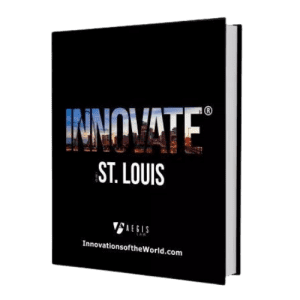When I started at Maritz as the behavioral innovation director, I was asked to introduce myself on stage to the entire company. I’ll admit, I was brand new, and speaking authentically to this huge group of people was a little intimidating. I decided to talk about my grandfathers, because I inherited a set of values from them that in large part informs my approach to innovation.
One of them was a farmer; he grew and harvested pine trees. I can tell you, there are no quick wins in growing pine trees. It takes years of work, endurance, patience, and care. It also requires—quite literall —field research. You need an innovative spirit, curiosity, and an ability to test your hypotheses. My other grandfather built houses in Jacksonville, Florida, where I grew up. He never wasted anything: materials, time, or the opportunity to meet someone new. In my introduction to Maritz, I talked about how inspiring it was to see his houses— his work—still everywhere around the city, 50 years later.
People often associate “move fast and break things” with innovation. And while that might be relevant to some innovation projects, it is antithetical to building a lasting culture and innovation infrastructure. The concepts of patience, research, craftsmanship, and durability are crucial to innovation and what it’s supposed to achieve. Even though I was new to Maritz, I felt at home there, because at a 125-year-old company, there’s an ingrained appreciation for those same concepts and building things that last.
The other thing I knew is that Maritz’ work has been grounded in psychology and behavioral science for decades. That’s where my team—Behavioral Science and Innovation—comes in. From our position as a center of excellence, our goal is to build out the capacity of the teams with whom we work; we succeed when they succeed. Behavioral science and innovation are a natural pairing—in fact, it surprises me that so few organizations employ this.
Just a Quick Note:
InnovationsOfTheWorld.com has partnered with Trade License Zone (TLZ) to support global innovators looking to expand internationally. Take advantage of the UAE’s Free Zones—enjoy streamlined setup, low corporate taxes, and a strategic gateway to the Middle East and beyond.
Get Your UAE Free Zone License Fast & Easy!A key tenet of behavioral science is to understand the context of the environment you are trying to impact. I spent my first year at Maritz with at least 50 different teams, doing everything from setting up remote-device beacons to helping run fulfillment out of the warehouse. I strove to learn as much as I could about what we do so that when I started making recommendations, I could trust—and others could too—that those recommendations came from an informed place and a judicious one.
We also turn to research—our own and conducted by others—to inform the design of our innovation processes. For example, should we concentrate our innovation efforts with a single team, or should we design a scalable ideation system? Well, there’s research around the notion that success is not about having a single good idea; it’s about your ideation rate. How many ideas can you generate, and how many can you vet? Your ideation rate is more correlated with growth and net revenue than with other traditional variables. This helped us decide to open our innovation process more broadly.
Similarly, innovation benefits from the behavioral principle of operational transparency. Essentially, this means we should show the work that’s going on. It engenders trust and can lead to greater participation. Strategically crowdsourcing some ideas allows us to show people where the ideas they’ve given us are in the innovation process—as well as what their peers think about them and how experts in the company are reviewing them. Giving folks visibility allays that feeling of having given their very best ideas and seeing them disappear (even when they actually haven’t).
As I approached my one-year anniversary at Maritz, I revisited that speech from when I first started and was surprised and pleased to see how much of it still rang true. With the history this team and company have, maybe I shouldn’t have been so surprised.















